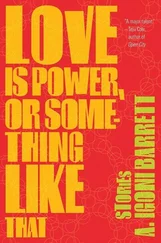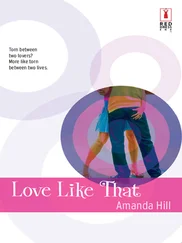But by then my family was getting restive. Or, at least, my wife was. My children were, to all intents and purposes, native Americans. They spoke with an American accent, knew every word of the ‘Star Spangled Banner’ and thought it perfectly normal that our delightful, friendly neighbours kept his ’n’ hers pistols in their bedside tables. All they knew about the United Kingdom was that every time they went there for a holiday it rained. But I had promised their mother that we would return home before they went to secondary school and she was keeping me to that promise. A date was set. And then the big story (for the BBC at any rate) switched from the United States to another country on another continent. Two countries in fact: Rhodesia (as Zimbabwe was then known) and its powerful neighbour, South Africa.
BBC Television News had a problem reporting from South Africa. We were not allowed to open a news bureau there. The apartheid regime tolerated radio, but drew the line at letting in a television correspondent. Then, in 1976, they changed their mind. Nobody knew why. Maybe they calculated that if only the rest of the world could see what problems the country was facing they would change their hostile attitude to apartheid and remove the iniquitous sanctions. Whatever their reasoning the BBC leaped at the offer and I got a call from my boss Alan Protheroe.
‘Hi John … looking forward to leaving Washington?’
‘You bet! My wife is counting the days … packing the suitcases already.’
There was a slight pause and then …
‘Umm … that’s good. Just one slight snag …’
‘Stop right there Alan! I’ve told her we’re leaving the States and that’s that.’
‘Of course … of course … no question about leaving the States … it’s just that I’d like you to make a bit of a diversion en route to London.’
The diversion was 8,000 miles.
5
A sub-machine gun on expenses
There were two huge and simultaneous stories on the African continent closely connected to Britain. One was the growing threat to the apartheid regime in South Africa and the fear that the country would collapse into lawlessness. The other was the bush war in Rhodesia, which would end with the sun finally setting on Britain’s last colonial outpost on the African continent. I had first been to South Africa in the 1960s when the world was beginning to take apartheid seriously and opposition to it was gathering pace. The police and military kept an iron grip on the growing discontent of the black population – and a beady eye on foreign reporters like me who were trying to tell the world about the inhumanity of the system. When I returned in the 1970s the country was under siege.
My wife hated living there – partly out of fear of the knock on the door from the South African police. We were allowing a husband and wife to live together in our house in Johannesburg. That meant we were breaking the law and so were they. Their crime was that they were black and the shameful apartheid laws did not allow black couples to live together in ‘white’ neighbourhoods, let alone allow them to have their children living with them. If they wanted to live together legally as a family, they would have had to find a home in one of the so-called townships. The nearest to us was a squalid slum called Alexandria, or ‘Alex’ as everyone called it.
It was a hell on earth – an affront to the richest nation in sub-Saharan Africa. Raw sewage ran in the gutters and most of the shacks had no electricity or running water. The children looked as if they were permanently hungry or sick, or both. Most of the men had no work and their wives fought a hopeless battle to give their children a decent meal every day and, even more difficult, some chance of an education.
On the other side of the main road out of Johannesburg was a different universe: the white suburb of Sandton, known to everyone as the ‘mink and manure’ belt (the mink to cover the elegant shoulders of the women in the cold high-veld winters, the manure deposited by their children’s ponies). I suspect they spent more in a month on their ponies than a family in Alex spent in a year – on everything.
Our own house closer to the city centre was typical of the homes in the smart northern suburbs of the vast city. It cost about as much as a modest semi in my home city of Cardiff but in Cardiff a modest semi did not come with verandas on all sides, nor a swimming pool in a beautifully tended garden shaded by a magnificent jacaranda tree and shielded from the obligatory servants’ quarters by shrubs that seemed to flower all year round. It was, in short, a small paradise – but available only to those with white skin.
In our absurdly naive idealism my wife and I had agreed that when we moved to Johannesburg we would have no black servants. We were not going to turn into those ghastly whites whose lawns were immaculate thanks to the gardeners (black, obviously) who were paid a pittance to crawl over them all day plucking out every weed by hand or whose house servants called their employers ‘master’ or ‘madam’. I recall with a shudder the first time we had dinner with a white couple, and on the table was a little silver bell. Our hostess would ring it imperiously to summon the next course or when she spotted something of which she disapproved. Not that they were all like her.
There were many, many decent white liberals who fought tenaciously to end apartheid and treated their servants with dignity and generosity but yes, of course, they had servants. And, of course, we too ended up with them. I say ‘ended up’. It took roughly twenty-four hours. On our first day in our new home I decided to give the overgrown grass in front of the house a trim. I’d barely pulled the starter cord on the lawnmower before I was surrounded by a small crowd of young black men, jostling with each other to take over.
‘Let me do that boss … you must not do that!’ And so I did. They desperately needed work and to deny it to them just to parade my liberal credentials and indulge in a bit of virtue-signalling would have been both selfish and stupid.
The couple who ended up working for us and living with us were delightful and intelligent (they spoke three languages fluently) but I never did persuade them to call me John. It was always ‘master’. It became almost a joke:
Me: ‘Victor, my name is John so please stop calling me master.’
Victor: ‘OK master.’
They were the children of apartheid and were permanently scarred by it in ways people like me struggled to understand.
For the whites of the northern suburbs, though, life was good – if you were able to accept that you, as a white person, were the superior race and black people existed to do your bidding. My wife could not. She hated having to send our children to posh private schools. We tried the local state school and pulled them out after one term. Like everything else in that disfigured country, the education system was racist to the core. At least the private schools did not teach history from a purely white supremacist standpoint.
She hated having to stand in the very short ‘Whites/Blankes’ queue at the post office while the ‘Blacks/Swartes’ queue stretched into the distance. She hated the way black people automatically stepped off the pavement to make way for whites. She hated the high walls, topped with spikes, of our neighbours’ houses and the armed guards whom some of the more fearful residents kept in little huts outside their fortified gates.
There’s no doubt that security was a worry, though, and we were endlessly nagged by friends to at least get a fierce dog – just in case. John Simpson, who was the BBC’s radio correspondent when I arrived in South Africa and had become a close friend, offered me his dog when he returned to London. He was a very fierce-looking Rhodesian ridgeback called Titus – as strong as an ox but very good with small children, as John was anxious to point out. And so he was. But he had one slight flaw as a guard dog which John conveniently forgot to mention when he handed him over to me: he was terrified of black men – presumably because of something that had happened when he was a puppy.
Читать дальше












